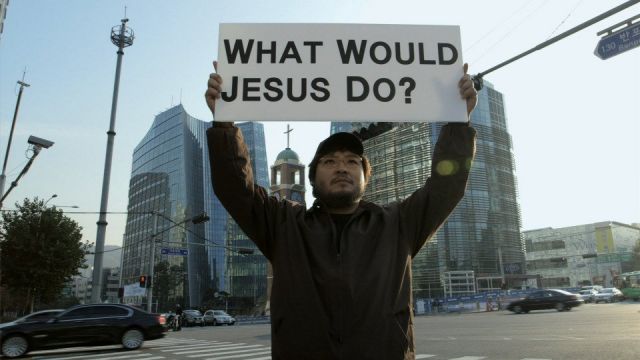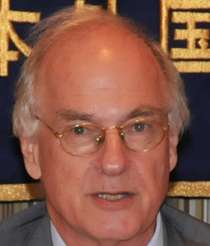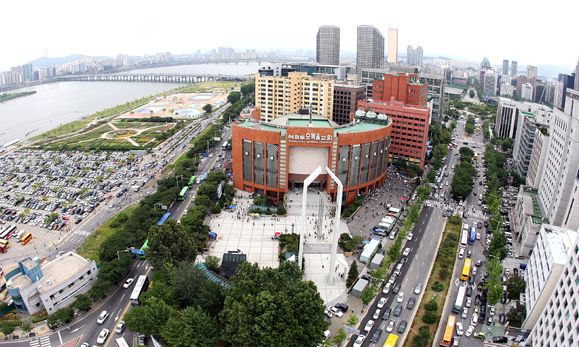By Donald Kirk
The growth of megachurches worldwide is a global phenomenon, a mass movement in which thousands of individual churches or parishes each claim more than 2,000 members. The Full Gospel Church in Yoido is the world’s largest, with hundreds of thousands attending 10 or more services every Sunday. Nearly half the world’s 50 biggest Christian megachurches are in Korea if we define Christian, as do Koreans, to mean Protestant or non-Catholic, though Catholics are most definitely Christians.
The rise of the megachurch in Korea is ironic indeed considering that early Christians, Catholic and then Protestant missionaries, had to suffer and die in their struggle to spread the word of God in the late Chosun dynasty. These days, however, Korea’s Christian churches are wealthy and influential. In fact, they face an age-old problem, as the apostle Matthew wrote: “Ye cannot serve God and mammon”–one of the most quoted lines from the bible that I remember hearing so often as a student decades ago at an Episcopal school near Boston.
Clearly a number of Korean pastors, most famously the Rev. David Cho, founder of the Full Gospel Church, have had to wrestle with this paradox. How could they rationalize the joy in enriching themselves from donations, from church coffers, from church enterprises, with the biblical injunction to serve God, not money?
A new documentary, “Quo Vadis,” released on December 10 and directed by Kim Jae-hwan, who worked as a producer and director at MBC for five years, addresses this question in an exposé of the greed and hypocrisy seen in the rise of some of Seoul’s largest churches.
The name “Quo Vadis” is appropriate. It means, “Where are you going?,” the question that the apostle Peter asked Jesus Christ after Christ had risen from the dead. Christ is said to have responded that he was going to Rome to be crucified again. In this documentary, which includes fictional as well as starkly factual material as well, Jesus, played by Nam Myung-ryul asks, “Quo Vadis, the Korean churches?”
The question to which director Kim Jae-hwan wants an answer from the real-life characters in the film is, “Are you a real follower of Jesus?” The title evokes memories of the 1951 American film classic “Quo Vadis” about the corruption of the Roman emperor Nero as he persecutes Christians. That’s a relevant image considering the corruption exposed in this documentary.
 Director Kim, mingling fact with fiction, opens with an actor in the role of “Michael More.” The name is a play on Michael Moore, the famous American documentary filmmaker, and “In Praise of Folly (Moriae Encomium),” the heavily satirical work of Erasmus, published in 1511, that gave voice to the revolt against Catholicism, the “Protestant Reformation.” More, played by Lee Jong-yun, is seen chasing after pastors, asking embarrassing questions about their transgressions. These range from pilfering church funds to exploiting young women to passing on control of their churches to their sons to building huge edifices costing many billions of won. The pastors tend to respond with outrage when pressed for answers.
Director Kim, mingling fact with fiction, opens with an actor in the role of “Michael More.” The name is a play on Michael Moore, the famous American documentary filmmaker, and “In Praise of Folly (Moriae Encomium),” the heavily satirical work of Erasmus, published in 1511, that gave voice to the revolt against Catholicism, the “Protestant Reformation.” More, played by Lee Jong-yun, is seen chasing after pastors, asking embarrassing questions about their transgressions. These range from pilfering church funds to exploiting young women to passing on control of their churches to their sons to building huge edifices costing many billions of won. The pastors tend to respond with outrage when pressed for answers.
As a foreigner, I have always been greatly impressed by the role of Christianity in Korea. Historically, Christians were at the forefront of uprisings against Japanese rule, and the dedication of Christians on a mass level to biblical teaching shows devotion not seen in many Christian countries. This low-budget film, three or four years in planning and production, at a cost of about 300 million won, tells another story. Pastors, clothed in clerical garb, are also mere mortals capable of sinning like the rest of us.
Kim cites a poll showing that pastors in Korea have the “lowest credibility along with politicians,” proving “that the Korean churches are distorting the gospel of Jesus.” Deepening the message, the actor, Nam Myung-ryul, who plays the role of Jesus, also appears as a pastor filled with doubt about whether he should have built a megachurch, wondering if he truly “followed the road of Jesus” and feeling “miserable” as he wonders if he truly “followed the road of Jesus.”
role of Jesus, also appears as a pastor filled with doubt about whether he should have built a megachurch, wondering if he truly “followed the road of Jesus” and feeling “miserable” as he wonders if he truly “followed the road of Jesus.”
The quest for comments from real-life pastors, caught before the relentless camera, shows their reluctance to face up to their abuse of power. Kim compares Korea’s churches to those in the Middle Ages when church and state were intertwined and priests were “mediator between God and human being.” Martin Luther and other reformers, rebelling against the priests, disputed that role, but “Korea Protestantism has taught that pastors are the servant of the Lord, and the only one who can judge the pastors is the Lord.”
The film has only to record a few sermons by powerful pastors, notably Cho of the Full Gospel Church, to reveal their lack of humility in the face of revelations of misconduct. The film also links the pastors’ corruption to national leadership. “The most humiliating event of Korean Christianity,” the director believes,” was a prayer meeting at which President Chun Doo-hwan, shortly after the brutal suppression of the Gwangju revolt in May 1980, “was blessed” by “cowardly pastors.” Jesus, played by Nam, emerges on camera to show “the humiliation of Jesus when they were praying for the commander.”
But how many Koreans will be able to see the film now that it’s been released? The fear is that multiplex theaters will refuse to show it. “Koreans say the churches have more power than the president,” says Kim. For those who do get to see it, “Quo Vadis” will impress them as a forceful, dramatic reminder of the need for Korea’s Christian leaders to return to the worship of God, not mammon.
________________________________________________________________
 Donald Kirk has been covering the Korean peninsula for more than four decades. He is a veteran correspondent and noted author on conflict and crisis from Asia to the Middle East. He has covered wars from Vietnam to Iraq, focusing on political, diplomatic, economic and social as well as military issues.
Donald Kirk has been covering the Korean peninsula for more than four decades. He is a veteran correspondent and noted author on conflict and crisis from Asia to the Middle East. He has covered wars from Vietnam to Iraq, focusing on political, diplomatic, economic and social as well as military issues.
He most recently published “Okinawa and Jeju: Bases of Discontent.” His Web site is donaldkirk.com
Contact him at kirkdon@yahoo.com.
Note: There is a print link embedded within this post, please visit this post to print it.| Thethreewisemonkeys.com 3WM Social Media    |
|
'Hood News Art Event/PSA Expat Life Featured Fiction/Poetry
From the Scene Korean Life Politics Rant Review Student Writing Travel



